As part of my commitments made in the #meandwhitesupremacy challenge I created this reading list to re-educate myself on racism, white supremacy, and my colonial roots. This list is by necessity of time is incomplete, and represents only a stepping stone in a lifelong path of learning. I’ve done my best in the last two weeks to research books on anti-racism work that speak to my personal context of a spiritual white woman living as a settler in Saskatchewan as a self identified “progressive”. There are specific traps of thought, learned cultural beliefs and attitudes, and programmed behaviors that are related to this context that I have only just begun to explore. Therefore starting the reading list from this knowledge was a strategic choice on my part, and mileage may vary for others working from a different starting place. I’ve chosen to release the list as a monthly reading list in order to encourage others to join me on this journey. Because as Layla F. Saad pointed out at the beginning of the #meandwhitesupremacy challenge, it is much easier to do this hard self reflection work in community. I will be doing my own personal reflections related to the book each month here, but I also invite anyone moved to read along with me to join the conversation with their own reflections unpacking their relationship to the material in order to deepen our learning and hold each other accountable.
September 2018
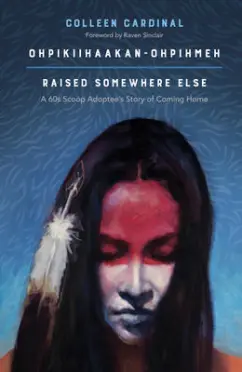 Ohpikiihaakan-ohpihmeh (Raised somewhere else): A 60s Scoop Adoptee’s Story of Coming Home by Colleen Cardinal (available here)
Ohpikiihaakan-ohpihmeh (Raised somewhere else): A 60s Scoop Adoptee’s Story of Coming Home by Colleen Cardinal (available here)
Synopsis: During the 60s Scoop, over 20,000 Indigenous children in Canada were removed from their biological families, lands and culture and trafficked across provinces, borders and overseas to be raised in non-Indigenous households.
Ohpikiihaakan-ohpihmeh delves into the personal and provocative narrative of Colleen Cardinal’s journey growing up in a non- Indigenous household as a 60s Scoop adoptee. Cardinal speaks frankly and intimately about instances of violence and abuse throughout her life, but this book is not a story of tragedy. It is a story of empowerment, reclamation and, ultimately, personal reconciliation. It is a form of Indigenous resistance through truth-telling, a story that informs the narrative on missing and murdered Indigenous women, colonial violence, racism and the Indigenous child welfare system.
October 2018
Between The World and Me by Ta-Nehisi Coates (available here)
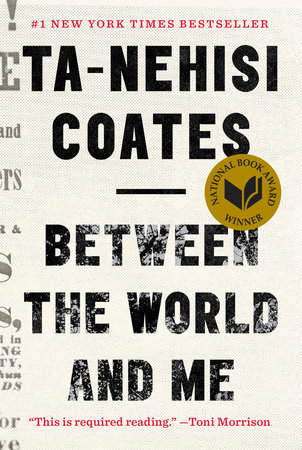 Synopsis: In a profound work that pivots from the biggest questions about American history and ideals to the most intimate concerns of a father for his son, Ta-Nehisi Coates offers a powerful new framework for understanding our nation’s history and current crisis. Americans have built an empire on the idea of “race,” a falsehood that damages us all but falls most heavily on the bodies of black women and men—bodies exploited through slavery and segregation, and, today, threatened, locked up, and murdered out of all proportion. What is it like to inhabit a black body and find a way to live within it? And how can we all honestly reckon with this fraught history and free ourselves from its burden?
Synopsis: In a profound work that pivots from the biggest questions about American history and ideals to the most intimate concerns of a father for his son, Ta-Nehisi Coates offers a powerful new framework for understanding our nation’s history and current crisis. Americans have built an empire on the idea of “race,” a falsehood that damages us all but falls most heavily on the bodies of black women and men—bodies exploited through slavery and segregation, and, today, threatened, locked up, and murdered out of all proportion. What is it like to inhabit a black body and find a way to live within it? And how can we all honestly reckon with this fraught history and free ourselves from its burden?
November 2018
The History of White People by Nell Irvin Painter (available here)
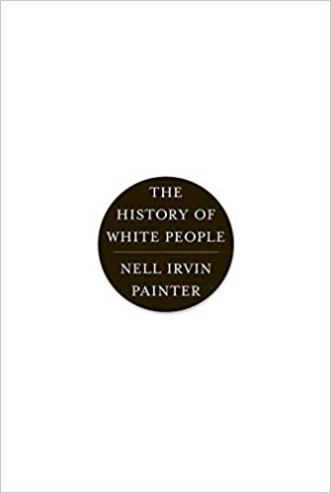 Synopsis: Telling perhaps the most important forgotten story in American history, eminent historian Nell Irvin Painter guides us through more than two thousand years of Western civilization, illuminating not only the invention of race but also the frequent praise of “whiteness” for economic, scientific, and political ends. A story filled with towering historical figures, The History of White People closes a huge gap in literature that has long focused on the non-white and forcefully reminds us that the concept of “race” is an all-too-human invention whose meaning, importance, and reality have changed as it has been driven by a long and rich history of events.
Synopsis: Telling perhaps the most important forgotten story in American history, eminent historian Nell Irvin Painter guides us through more than two thousand years of Western civilization, illuminating not only the invention of race but also the frequent praise of “whiteness” for economic, scientific, and political ends. A story filled with towering historical figures, The History of White People closes a huge gap in literature that has long focused on the non-white and forcefully reminds us that the concept of “race” is an all-too-human invention whose meaning, importance, and reality have changed as it has been driven by a long and rich history of events.
December 2018
Split T ooth by Tanya Tagaq (pre-order here)
ooth by Tanya Tagaq (pre-order here)
Synopsis: From the internationally acclaimed Inuit throat singer who has dazzled and enthralled the world with music it had never heard before, a fierce, tender, heartbreaking story unlike anything you’ve ever read.
Fact can be as strange as fiction. It can also be as dark, as violent, as rapturous. In the end, there may be no difference between them.
January 2019
So You Want to Talk About Race by Ijeoma Oluo (available here)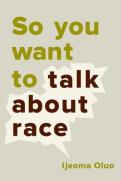
Synopsis: In this breakout book, Ijeoma Oluo explores the complex reality of today’s racial landscape–from white privilege and police brutality to systemic discrimination and the Black Lives Matter movement–offering straightforward clarity that readers need to contribute to the dismantling of the racial divide.
February 2019
When They Call You A Terrorist: A Black Lives Matter Memoir by asha bandele, Patrisse Khan-Cullors (available here)
Synopsis: Raised by a single mother in an impoverished neighborhood in LosAngeles,
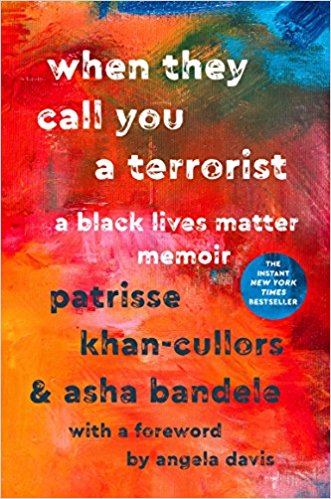
Patrisse Khan-Cullors experienced firsthand the prejudice and pe
rsecution Black Americans endure at the hands of law enforcement. For Patrisse, the most vulnerable people in the country are Black people. Deliberately and ruthlessly targeted by a criminal justice system serving a white privilege agenda, Black people are subjected to unjustifiable racial profiling and police brutality. In 2013, when Trayvon Martin’s killer went free, Patrisse’s outrage led her to co-found Black Lives Matter with Alicia Garza and Opal Tometi.
Condemned as terrorists and as a threat to America, these loving women founded a
hashtag that birthed the movement to demand accountability from the authorities who continually turn a blind eye to the injustices inflicted upon people of Black and Brown skin.
March 2019
Women, Race, and Class by Angela Davis (available here)

Synopsis: A powerful study of the women’s liberation movement in the U.S.,from abolitionist days to the present, that demonstrates how it has always been hampered by the racist and classist biases of its leaders. From the widely revered and legendary political activist and scholar Angela Davis.
April 2019
Stolen Sisters by Emmanuelle Walter (available here)
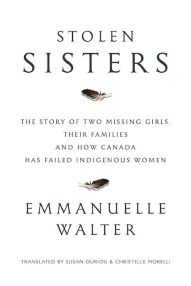
Synopsis: In 2014, the nation was rocked by the brutal violence against young
Aboriginal women Loretta Saunders, Tina Fontaine and Rinelle Harper. But tragically, they were not the only Aboriginal women to suffer that year. In fact, an official report revealed that since 1980, 1,200 Canadian Aboriginal women have been murdered or have gone missing. This alarming official figure reveals a national tragedy and the systemic failure of law enforcement and of all levels of government to address the issue.
May 2019
Contesting White Supremacy: School Segregation, Anti-Racism, and the Making of Chinese Canadians by Timothy J. Stanley (available here)
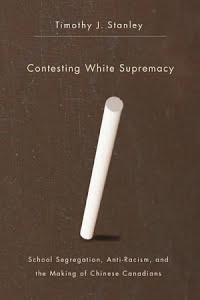
Synopsis: In 1922-23, Chinese students in Victoria, British Columbia, went on strike to protest a school board’s attempt to impose racial segregation. Their resistance was unexpected at the time, and it runs against the grain of mainstream accounts of Asian exclusion in Canada, which tend to ignore the agency of the excluded.
Contesting White Supremacy offers an alternative reading of the history of racism in British Columbia, one based on Chinese sources and perspectives. Employing an innovative theory of racism and anti-racism to explain the strike and document its antecedents, Timothy Stanley demonstrates that by the 1920s migrants from China and their BC-born children actively resisted policy makers’ efforts to organize white supremacy into the very texture of life. The education system in particular served as an arena where white supremacy confronted Chinese nationalist schooling and where parents and students rejected the idea of being either Chinese or Canadian and instead invented a new category – Chinese Canadian – to define their identity.
June 2019
Separate and Dominate: Feminism After the War on Terror by Christine Delphy (available here)
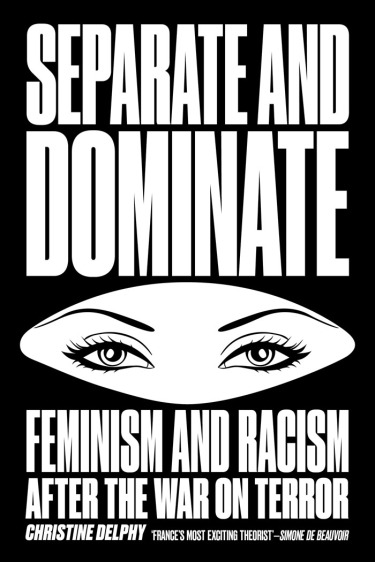
Synopsis: An examination of how mainstream feminism has been mobilized in support of racist measures.
Feminist Christine Delphy co-founded the journal Nouvelles questions féministes with Simone de Beauvoir in the 1970s and became one of the most influential figures in French feminism. Today, Delphy remains a prominent and controversial feminist thinker, a rare public voice denouncing the racist motivations of the government’s 2011 ban of the Muslim veil. Castigating humanitarian liberals for demanding the cultural assimilation of the women they are purporting to “save,” Delphy shows how criminalizing Islam in the name of feminism is fundamentally paradoxical.
July 2019
Colorblind by Tim Wise (available here)
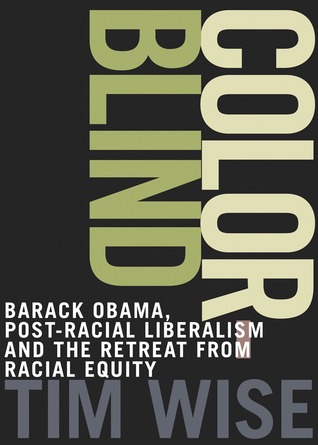
Synopsis: Following the civil rights movement, race relations in the United States entered a new era. Legal gains were interpreted by some as ensuring equal treatment for all and that “colorblind” policies and programs would be the best way forward. Since then, many voices have called for an end to affirmative action and other color-conscious policies and programs, and even for a retreat from public discussion of racism itself.
Bolstered by the election of Barack Obama, proponents of colorblindness argue that the obstacles faced by blacks and people of color in the United States can no longer be attributed to racism but instead result from economic forces. Thus, they contend, programs meant to uplift working-class and poor people are the best means for overcoming any racial inequalities that might still persist. InColorblind, Tim Wise refutes these assertions and advocates that the best way forward is to become more, not less, conscious of race and its impact on equal opportunity.
September 2019
Structures of Indifference: An Indigenous Life and Death in a Canadian City by Adele Perry (available here)
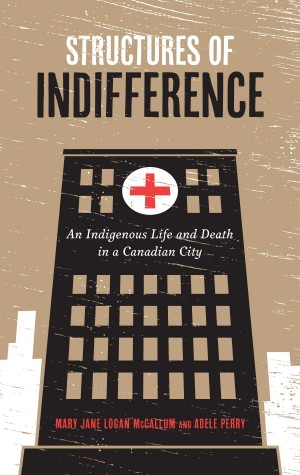
Synopsis: Structures of Indifference examines an Indigenous life and death in a Canadian city, and what it reveals about the ongoing history of colonialism. At the heart of this story is a thirty-four-hour period in September 2008. During that day and half, Brian Sinclair, a middle-aged, non-Status Anishinaabeg resident of Manitoba’s capital city, arrived in the emergency room of the Health Sciences Centre, Winnipeg’s major downtown hospital, was left untreated and unattended to, and ultimately died from an easily treatable infection. His death reflects a particular structure of indifference born of and maintained by colonialism.
McCallum and Perry present the ways in which Sinclair, once erased and ignored, came to represent diffuse, yet singular and largely dehumanized ideas about Indigenous people, modernity, and decline in cities. This story tells us about ordinary indigeneity in the City of Winnipeg through Sinclair’s experience and restores the complex humanity denied him in his interactions with Canadian health and legal systems, both before and after
his death.
October 2019
The Good Immigrant Edited by Nikesh Shukla, Chimene Suleyman (available here)
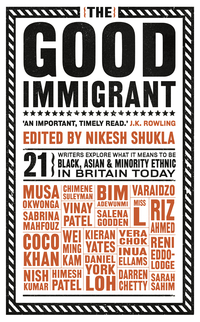
Synopsis: An urgent collection of essays by first and second-generation immigrants, exploring what it’s like to be othered in an increasingly divided America.
From Trump’s proposed border wall and travel ban to the marching of White Supremacists in Charlottesville, America is consumed by tensions over immigration and the question of which bodies are welcome. In this much-anticipated follow-up to the bestselling UK edition, hailed by Zadie Smith as “lively and vital,” editors Nikesh Shukla and Chimene Suleyman hand the microphone to an incredible range of writers whose humanity and right to be here is under attack.
November 2019
Uprooting Racism: How White People Can Work for Racial Justice by Paul Kivel (available here)
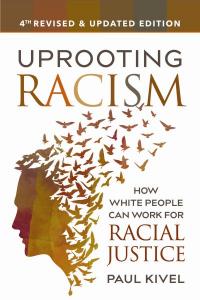
Synopsis: In 2016, the president-elect of the United States openly called for segregation and deportation based on race and religion. Meanwhile, inequalities in education, housing, health care and the job market continue to prevail, while increased insecurity and fear have led to an epidemic of scapegoating and harassment of people of color. Yet recent polls show that only 31 percent of white people in the US believe racism is a major societal problem; at the same time, resistance is strong, as highlighted by Indigenous struggles for land and sovereignty and the Movement for Black Lives.
Completely revised and updated, this 4th edition of Uprooting Racism offers a framework around neoliberalism and interpersonal, institutional, and cultural racism, along with stories of resistance and white solidarity. It provides practical tools and advice on how white people can work as allies for racial justice, engaging the reader through questions, exercises, and suggestions for action, and includes a wealth of information about specific cultural groups such as Muslims, people with mixed-heritage, Native Americans, Jews, recent immigrants, Asian Americans, and Latino/as.
December 2019
Sister Outsider by Audre Lorde (available here)
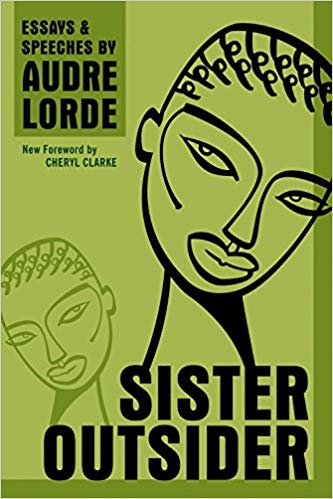
Synopsis: Presenting the essential writings of black lesbian poet and feminist writer Audre Lorde, Sister Outsider celebrates an influential voice in twentieth-century literature.
In this charged collection of fifteen essays and speeches, Lorde takes on sexism, racism, ageism, homophobia, and class, and propounds social difference as a vehicle for action and change. Her prose is incisive, unflinching, and lyrical, reflecting struggle but ultimately offering messages of hope. This commemorative edition includes a new foreword by Lorde-scholar and poet Cheryl Clarke, who celebrates the ways in which Lorde’s philosophies resonate more than twenty years after they were first published.



